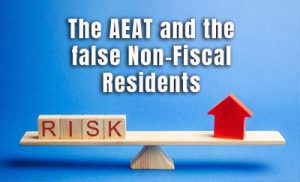
The Spanish Tax Agency also intends to implement the new information and assistance model, with a complete list of the services and channels available for each one, along with the new appointment application that improves its usability; performing ‘hairstyles’ to detect underground economy will be promoted, especially in the sector of rehabilitation and real estate reforms, as well as for the identification of sales concealment software.
The AEAT will be strengthened the control over virtual payments through entities or applications located abroad. Investigation into cryptocurrencies will be boosted to locate assets subject to seizure and discover links to criminal networks. New technology will be introduced to monitor vessels engaged in illicit maritime traffic and detect contraband in postal parcels.
The initiative to reinforce the control of this variant of fraud by false non-residents appears in the general guidelines of the 2023 Tax Control Plan published a few days ago in the Official State Gazette (BOE), which also emphasizes the need to maintain control activity in the assumptions of simulation of residence in CCAA different from the real one, as well as in the exploitation of the information available on real owners of opaque companies with high-level residential properties. In the same way, specific plans will be executed in relation to the indirect ownership of real estate by non-residents, for the purposes of their correct patrimonial taxation.
Some of the data with which the Tax Agency monitors taxpayers are the geolocation of the mobile phone, the surveillance of social networks, the movements of credit cards, paid invoices or household supplies. The AEAT also plans to send agents to appear at home to deliver a request for false non-residents to report their economic situation and the reason for their stay in Spain, with a period of 10 calendar days to respond to the request.


0 comentarios